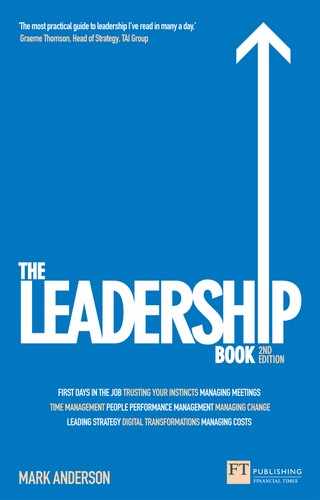Your leadership self
However much leadership is about championing the excellence of others, you are the starting point as an individual and must be aware that your words and actions set the tone for your business. Your behaviour – from your very first day in your organisation or team – is instrumental in defining the approach to the challenges and opportunities faced by your team; to the nature of relationships set with your suppliers and partners; to understanding and reacting to the marketplace; and to attitudes towards the management of people. This behaviour of yours is also scrutinised – colleagues watch to see what boundaries you set, what expectations you have, and what behaviours you demand in return. More particularly, this process of forensic scrutiny is also on the lookout for consistency – consistency in your message, and the match of your words with your deeds.
Many team members are ambivalent. They want leadership and to be led – they crave the energising effect of being part of a team in pursuit of credible goals under the banner of an inspiring leader. But they are also likely to be sceptical – they will likely have been through processes of change before, and may well have seen leaders and goals come and go. So you must know that you face a sceptical audience, that you face a major task of persuasion; that you will meet willing followers as well as diehard ‘blockers’ and that, above all else, all your words and deeds must support your vision (see pp. 45–52).
So to be an effective leader, you start with yourself – you ensure the strategic ‘fit’ of your own behaviour. You know that you have to set an example, and you make quite certain that the examples are set. You know that you are not only conveying a message, but that you are the message.
